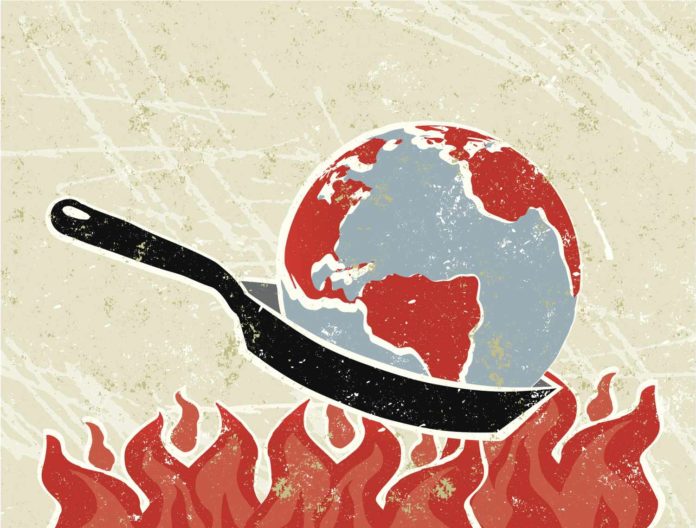We all know that climate change is one of the gravest threats to humanity, but what if something as easy and common as dinner could be a surprising weapon in the fight against climate change? Climate change can feel like a daunting problem, but what if its solution can be found in your kitchen, where you spend most of your time? It sounds crazy, but please continue reading!
While there is no doubt that fossil fuels are the primary contributors to greenhouse gas emissions, our cooking habits also play a significant role in causing climate change. If you cook with a stove that is powered by natural gas, it releases a major greenhouse gas known as carbon dioxide, which harms the climate. Electric stoves are not entirely innocent because some of them are made from plants that rely on fossil fuels. It is shocking to know that several of our essential commodities, like rice, cattle and wilted vegetables, emit methane gas, which contributes significantly to climate change.
It is important to know that every decision we make in the kitchen has the potential to have an impact on the environment, be it negative or positive. Thus, we can use the time we spend preparing dinner for ourselves and our family to combat climate change. It all begins with selecting the right ingredients for meal preparation. When we purchase locally produced foods or groceries from nearby farmers and businesses, we significantly reduce the carbon footprint of our meals by minimizing transportation emissions. Also, incorporating more plant-based proteins into our meals, such as beans, oats, and grains, helps to reduce carbon footprints because these options have a lower environmental impact than animal products and require fewer resources to manufacture.
When it comes to fighting climate change through cooking, it is extremely critical to consider not just what we cook but also how we cook. We can drastically minimize the carbon footprint of cooking by using renewable energy sources such as solar, wind, and hydroelectric power. This is because, in contrast to typical fossil fuels such as coal or natural gas, renewable energy sources provide electricity without releasing greenhouse gases.
Furthermore, we can easily fight climate change by using energy efficiently in the kitchen. The use of energy-efficient appliances such as induction stoves and conventional ovens, as well as simple kitchen practices such as reducing cooking time, using lids on pans and pots, and cooking numerous dishes at once, all contribute to a reduction in the amount of electricity or gas consumed during cooking. Since a significant amount of electricity is generated using fossil fuels such as coal or natural gas, reducing energy consumption results in fewer greenhouse gas emissions being emitted into the atmosphere. Thus, by reducing carbon emissions from energy generation, we can mitigate the drivers of climate change.
So, you can see that cooking dinner is more than just feeding yourself, your family, or loved ones; it is also about making decisions that have a positive impact on the environment. By choosing locally produced ingredients, including more planet-based options, and cooking with energy efficiently, we can transform our kitchens into a hub of sustainability.





